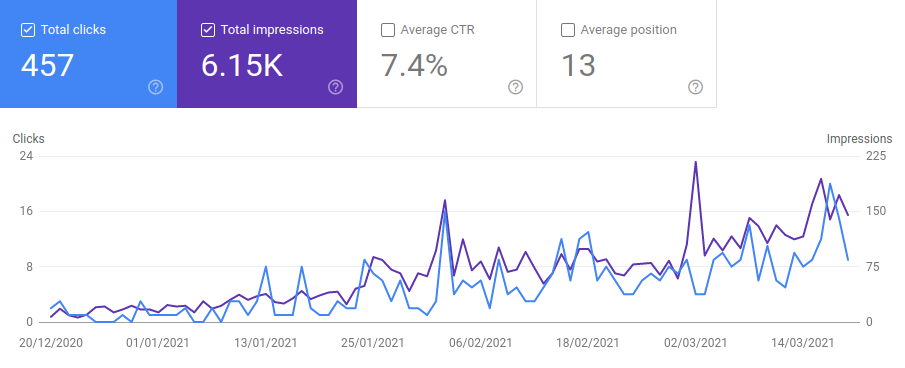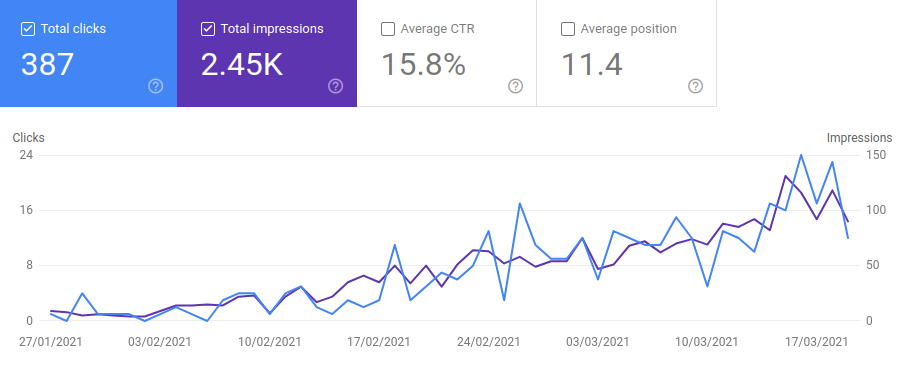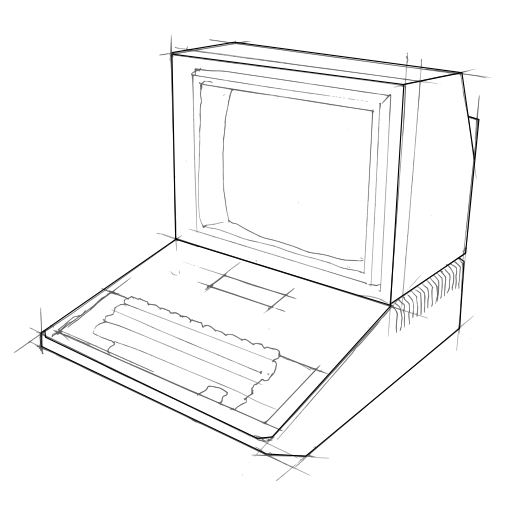In 2020 I made $693 USD from side projects. I contributed to several open source projects and made about a thousand commits on GitHub. I shipped a commercial game, a SaaS product, an IDE, two music apps, a handful of open source utilities, and a couple of websites. I love building stuff!
What I learned:
- Find demand before building something.
- Single-pay products are easier than SaaS.
- Build in public to boost the launch.
- Ongoing updates help people find the thing.
- Build websites to help people to find the thing.
- Being open source does not hurt sales.
The side project income mostly came from:
- A game called Asterogue
- A roguelike game template
- Two music apps (PO LoopSync and Beat Generator)
The SaaS products I worked on failed to generate more than a few cheeseburgers. 🍔 Good thing I love cheeseburgers. If you're doing a first time project and you want some quick wins then probably don't start with SaaS.
Most games follow a typical pattern. They earn all the money in a big burst at the start and then the income falls off to zero. I've heard this from talks by other indie game developers as well. There is a novelty factor in games. This was true for my game too.
I mainly got the word out on Asterogue by building the game in public. What that means is I posted in multiple game dev forums about progress as I was making the game. It was a big effort and the launch went alright as a result (as opposed to most projects which launch to crickets). My fastest sales were from Asterogue but they've fallen to zero now.
The two music apps have done better. I've had 3 months of steady sales from them. They're making a combined revenue of about $80 USD per month.
Beat Maker 3-month revenue

PO LoopSync 3-month revenue

I tried something new with PO LoopSync. I found demand before building. I studied a forum where enthusiasts of pocket operator devices hang out and I took notes. The notes revealed patterns in what they find important. Once I figured out what they want I made some mockups and asked them if it was what they wanted. When they said yes I built it.
This worked well and sales were good right from the start. Building stuff that people already want is more fun for everyone.
I've been building in public on different projects for a while now. It basically means I tweet about what I am making. Also, this very blog! When I launch something, people such as yourself can find out about it easily and tell others. That helps a lot to get the word out. Thank you for that!
I actually don't like building in public very much. It's uncomfortable. I especially don't like social media. So I've set up a system that allows me to interact with social media in an efficient and minimal way, but still be present. Maybe I'll post about that some time.
My problem up until now has been the bang-then-crash of launches. Initial interest and sales that then trail off. I've found two good ways to fix that this year. I guess you'd call these activities "marketing".
The first one is to post maintainance updates. Every time I update an existing project I try to post something about it. This probably seems obvious to a lot of people but it wasn't obvious to me. Each time I post an update I notice a small spike in interest and/or sales.
For example there was a gamejam for roguelike games this month. Leading up to the jam I made weekly updates to Roguelike Browser Boilerplate. I posted about them on the roguelike sub-reddit forum in their "saturday sharing" section. A bunch of new sales came in! Posting updates works.
The second thing I have tried is building useful websites that link to my apps. Marketing people call this SEO. I call it "building a useful website that links to my app". Not as catchy I guess. My friend Tobias showed me how effective SEO can be. There is also a good article about SEO by jdnoc that I learned from. Some people use SEO in a deceptive way but for me it's about giving my work the best chance to be found by people who are looking for it.
The first site I built is all about pocket operators. I used the research I did earlier to make a page about the most useful stuff. This got me on the front page of search for the phrase "pocket operator apps". Lo and behold one of my apps is a pocket operator app! So people find the page and then they can find my apps too. Here's a graph of the search volume on that site:

Another site I built is a free web app for generating random melodies. It's a procedural melody maker that generates midi melodies you can download. There's a link from the free web app to my other apps.
The name for this is apparently "side project marketing". So my side projects are being marketed by my side-side projects. The free web app shows up on the front page of search for a group of terms around "ai midi melody generator". One of the apps it links to is a random beat generator so the audience is very similar. Here's the graph of search volume for the melody generator:

So I think these two sites are a fairly steady channel where people find my apps. They're searching for "pocket operator apps" and "melody generator" and they find those sites and then they also sometimes click through and buy my apps.
There is one other way people are finding the apps. I have a free app on the Play store. It's an app for building music apps. So people who are already interested in music apps and development can find that, and then some of them also find my other apps.
The final thing I will note is that being open source has not hurt sales. Beat Maker is open source and I haven't open sourced PO LoopSync yet. So it's an imperfect A/B test but it's still useful. There isn't really much difference in the sales. There is basically only upside to being open source for somebody at my scale. People like it, and it builds trust, and it fits my ethics.
Anyway, I hope this is useful to somebody. I'll continue to post updates about my dev adventures and things I have discovered.
